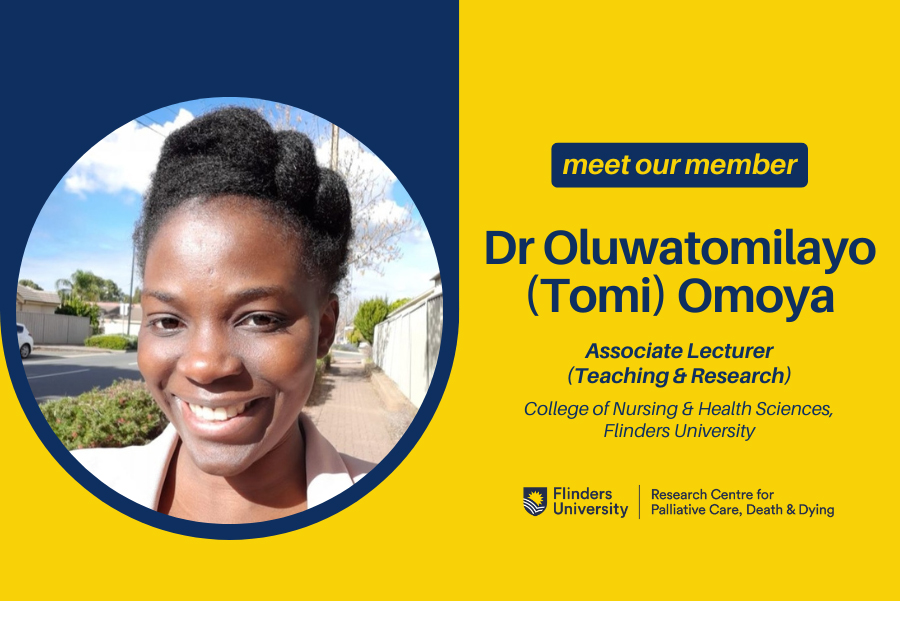
Dr Oluwatomilayo (Tomi) Omoya is an Associate Lecturer (Teaching & Research) in the College of Nursing and Health Sciences at Flinders University. RePaDD spoke with Tomi to learn more about her research, what she’s working on and a little about her life outside of research.
What is your main research area and why did it pique your interest?
The overarching themes of my research are understanding how end-of-life and palliative care are provided in unconventional areas such as an emergency department, the perception of the usefulness of advance directives in decision making at the end of life, and addressing barries that inhibit patient-centred end-of-life and palliative care.
I am an Emergency Department (ED) nurse and providing quality end-of-life care to patients and their families in a setting that often opposes end-of-life care is a challenge. Due to my experiences, and the challenges I have faced in ED when attempting to provide end-of-life care, I developed an interest in improving end-of-life care in areas outside of an end-of-life and palliative care setting.
What are you currently working on and how do you envision it helping improve palliative and end-of-life care?
I am currently working on a project evaluating the impact of an end-of-life/palliative care education program provided to paramedics by exploring their experiences in providing palliative and end-of-life care within the community.
The South Australian Ambulance Services (SAAS) provided an education program on end of life and managing acute palliative presentation to enable paramedics to respond to patients who were dying, and where an ED presentation was not needed. SAAS developed the education program for paramedics in collaboration with the Program of Experience in the Palliative Approach (PEPA) delivered in 2021. This project will identify some of the education needs of paramedics and assist them to better manage palliative care patients.
I am currently also involved in a multi-disciplinary project as a co-supervisor for an honours student exploring The Development of a national implementation strategy for the palliative Paramedicine Framework to standardise best practice across Australia. This project will hold focus groups with important stakeholders to help create a national plan for implementing the Framework. The goal is to agree on principles that will guide practices so ambulance services across Australia can confidently follow these recommendations and standardise best practices.
Which (one of your) publications/projects is most important to you and why did it excite you?
This was a publication on the Experiences of Australian emergency doctors and nurses using advance care directives in the provision of care at the end of life. This project was significant for me because it provided clear ways to enhance patient-centred care and autonomy for patients needing end-of-life and palliative care.
Outside of research, how do you like to spend your spare time?
In my spare time, I love cozying up with my husband and kids for movie nights, getting creative with bedtime games and stories for my boys, and lately, I’ve started exploring camping—though I’m still figuring out how to pitch a tent without it collapsing!

